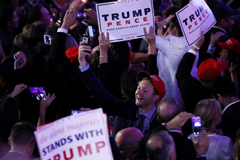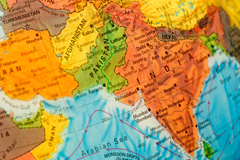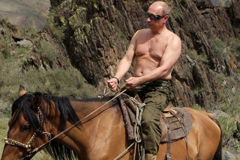News + Media
 |
précisDecember 2, 2016Nosy Neighbors: Regional Interference in Great Power InterventionsMarsin AlshamaryIf you ask an Iraqi what went wrong with the US-led military intervention, chances are they will blame their “bad neighbors.” Some will point to Iran for its infiltration of Shia political parties, others to Syria for allowing in a steady stream of foreign fighters, and still others will blame Turkey for meddling in Kurdish affairs. |
 |
précisDecember 2, 2016End NotesEnd Notes features the professional achievements of our scholars, students, and staff. This includes recent awards, speaking engagements, and publications. |
 |
Analysis + OpinionNovember 29, 2016How to think about RussiaBarry R. PosenThe National InterestBecause the West is strong, and relative to Russia likely to get stronger, it is in a position to accommodate some Russian concerns, says Barry Posen, Ford International Professor of Political Science and director of the MIT Security Studies Program. Posen is among several experts featured in The National Interest on the future of US-Russia relations. |
 |
Analysis + OpinionNovember 18, 2016Confusion is riskyVipin Narang, Christopher Clary The Indian ExpressAfter Manohar Parrikar’s comments on no-first-use policy, a prime ministerial clarification is called for. Since 1998, a key pillar of India’s nuclear policy has been a pledge not to use nuclear weapons first. After considering the utility of individually negotiated bilateral or multilateral agreements committing to no-first-use (NFU) of nuclear weapons, by August 1998, the then prime minister, Atal Bihari Vajpayee, opted to unilaterally announce that India would “not be the first to use nuclear weapons”. |
 |
Analysis + OpinionNovember 16, 2016The Wall and the Ban: Can Trump really accomplish either?John TirmanWBURAnti-immigrant fervor fueled Donald Trump’s White House bid from the beginning, so a Trump presidency naturally worries undocumented immigrants in the United States. |
 |
In the NewsNovember 9, 2016Donald Trump’s victory is part of a global white backlashZack BeauchampVoxRoger Petersen has argued, persuasively, that ethnic conflict around the world is often driven by something he calls “resentment”: the feeling of injustice on the part of a privileged portion of society. |
 |
In the NewsNovember 8, 2016Businessman Trump or bureaucrat Hillary—Whom does Asia prefer?Wesley RahnDeutsche Welle“The longing for closer association with the West is real,” Richard Samuels, director of CIS and Ford International Professor of Political Science, told Deutsche Welle. “However, it is constrained by the economic forces and opportunities that have only expanded since Clinton made that statement five years ago.” |
 |
Analysis + OpinionOctober 20, 2016South Asian nuclear tensions: Back to core issuesJayita SarkarBulletin of the Atomic ScientistsTo be sure, when tensions erupt between nuclear-armed adversaries in a conflict-prone zone, a superpower’s regional role is far from irrelevant, writes Jayita Sarkar, a Research Fellow with the MIT Security Studies Program. |
 |
News ReleaseOctober 19, 2016International Policy Lab issues second request for proposals“We are very pleased with the success of this initiative so far,” said faculty director Chappell Lawson, associate professor of political science. “Solving the challenges facing our country and the world is central to MIT's mission; better connecting MIT researchers and policymakers contributes to that goal.” |
 |
In the NewsOctober 15, 2016On the Putinization of politicsElizabeth WoodConcern about the possible role of Russian president Vladimir Putin in the American political process has emerged as an issue in the 2016 presidential election. Elizabeth Wood, professor of history, shares insight into this perspective in an effort to help inform the American voter. |

